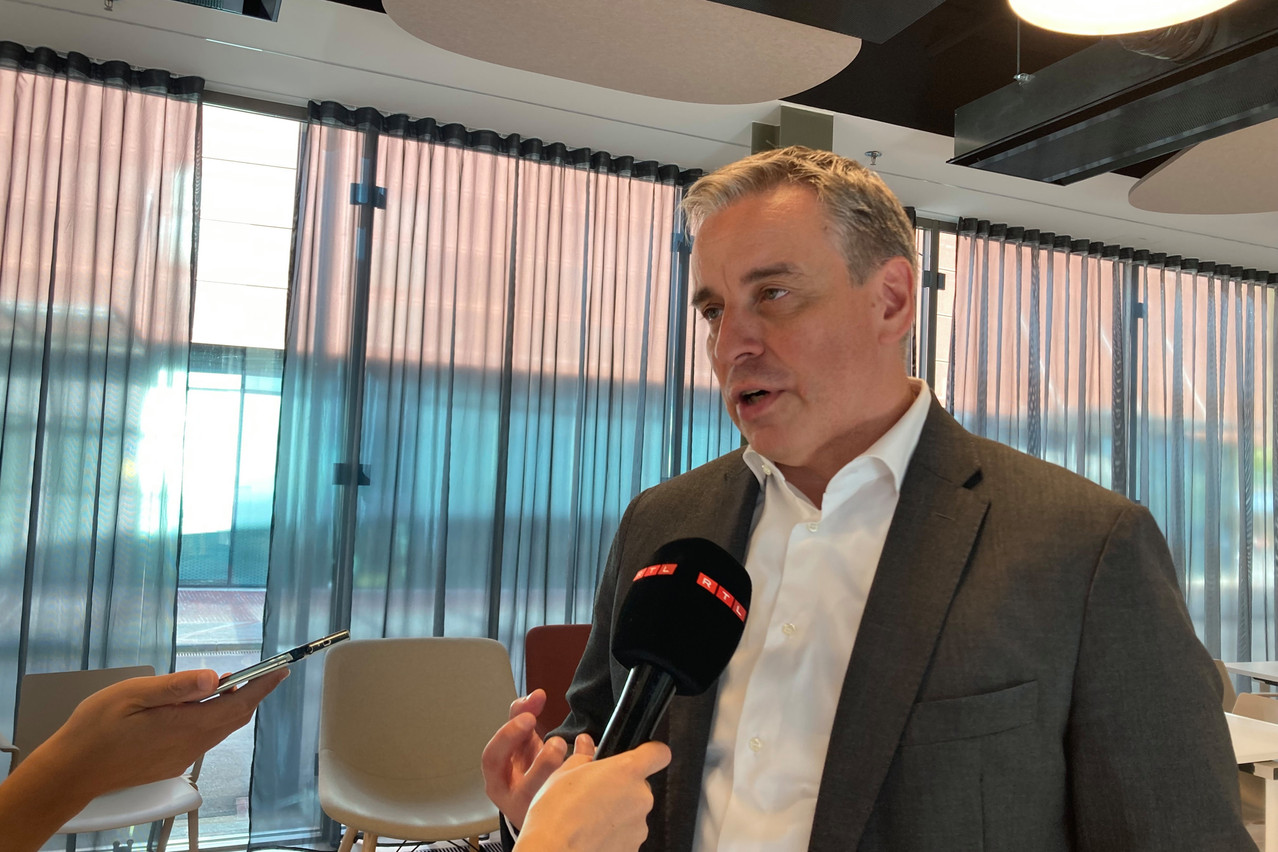With the start of the new school year just a few days away, Luxembourg’s education minister (DP) addressed the press on Thursday 12 September. While the main figures for the , a number of subjects were discussed: a ban on mobile phones in all primary schools from Easter 2025, a “physical distance” to be guaranteed at secondary school “between pupils and their smartphones” as part of a campaign to be launched on 30 September dedicated to the “screen-life balance” (but the framework for this is to be set by the schools); and a training programme in the south of the country for educators, soon to be available in French too.
Other priorities cited by Meisch--who has been at the helm of his ministry for almost eleven years--include the French-language literacy pilot project . “The project is advised by the Conseil Scientifique and monitored by the Luxembourg Centre for Educational Testing and the University of Luxembourg. A preliminary analysis of the project, with positive findings, was presented in June 2024, and the parallel German/French literacy programme could be rolled out nationwide from the start of the 2026/2027 school year at the earliest,” the minister said with satisfaction.
Three new European schools
“It will be necessary to keep the two literacy groups in French and German in certain subjects in order to maintain a certain social cohesion.” And while SEW, the OGBL’s education and science union, acknowledged the use of such diversification, at its back-to-school press conference on Tuesday 10 September, its president, Joëlle Damé, also felt that “the purpose of the project has not been studied. Will these pupils still manage to get into mainstream lycées? We don’t know.”
“I share this analysis and, for the moment, the children who started the project in 2022 are aged 7 or under, and we are already thinking about making language learning more flexible at secondary level so that it fits in well with what we do at primary level,” replied the minister.
Aware that the traditional Luxembourg school system is not suitable for all resident children, given that 47.3% of the population does not have Luxembourg nationality (as at 1 January 2024, according to Statec), Meisch also confirmed that three new accredited European schools would be opened in the Esch-sur-Alzette and Dudelange conurbations, and in the greater Luxembourg City area by 2028.
LGBTQI+ issues defended
The country will then count nine accredited European schools, “in response to the growing linguistic heterogeneity of the population and the influx of pupils from other countries joining Luxembourg state schools. And it’s been an undeniable success, with these schools unfortunately having to turn down hundreds of applications every year for lack of places. That’s why literacy courses in French are also a response to these requests,” says the education minister.
Meisch also responded to SEW’s concerns about bullying of teachers. “This is also a subject within the ministry, and we pay close attention to harassment, wherever it comes from and whoever it is directed at.” With regard to petition no. 3198 “Exclude LGBT themes from the education of minors,” which collected almost 10,000 signatures this summer and which will therefore be entitled to a public debate, the education minister replied that “these issues are a societal reality to which schools must open up and deal with them according to the age of the children. I can see that there are parents who want to keep these subjects away from their children, but the mission of state schools is to prepare young people for the realities of society so that they can take their place in society, and the public interest must dominate.”
This article was originally published in .
